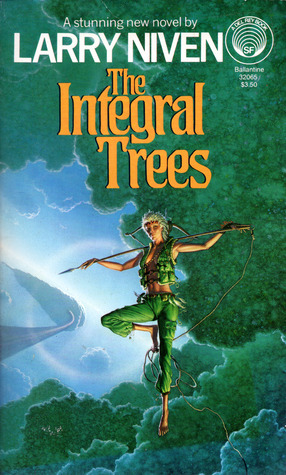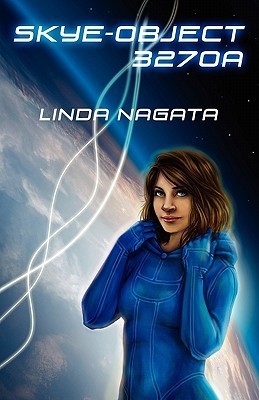Rachel Neumeier's Blog, page 209
January 9, 2019
Characters need to make choices
Here’s a post from Janet Reid: Choices characters make.
Sailing past choices looks like this:
Stan and Fran Stanley were longtime members of the Roadside Attraction biker gang. Every weekend was spent on the road, hitting dive bars and juke joints. On an otherwise normal Saturday afternoon in May, as they paused at the one stoplight in Bisbee, Arizona, Fran realized she was three sheets to the wind. That everyone in Roadside Attraction, including Stan, was drunk, and they’d been driving drunk like this for years. She got off her her bike, said goodbye to Stan, to Roadside Attraction, and left her custom painted Harley parked in front of the Five and Dime. Stan watched her go. He revved his bike and followed Roadside Attraction out of town.
Sure, that’s a compelling image (well, ok I hope it is) but what will make us care about about what happens it is what I left out. The choice Stan made:
Stan and Fran Stanley were longtime members of the Roadside Attraction biker gang. Every weekend was spent on the road, hitting dive bars and juke joints. On an otherwise normal Saturday afternoon in May, as they paused at the one stoplight in Bisbee, Arizona, Fran realized she was three sheets to the wind. That everyone in Roadside Attraction, including Stan was drunk, and they’d been driving drunk like this for years. She got off her her bike, said goodbye to Stan, to Roadside Attraction, and left her custom painted Harley parked in front of the Five and Dime. Stan watched her go. If he went after her, the guys would razz him as pussywhipped forever. He revved his bike and followed Roadside Attraction out of town.
We implicitly understand Fran’s choice. There’s no need to get bogged down in explaining it.
It’s STAN’S choice that you don’t want to bypass. He’s choosing his path for a reason, and knowing the reason tells us a lot about him. … Not every choice needs to be laid out, but this is one thing to watch for if you’re hearing a lot about “no plot”, “no tension”, “loses momentum.” All those say you’re doing events, not choices.
So, first: this makes sense! I think it’s quite true that the author needs to present the protagonist as making choices. Among other reasons, aside from the boost to the tension this is what causes the protagonist to feel to the reader like he or she has agency even if those choices are highly constrained.
Second: why in the world did Fran suddenly have this epiphany? After years of driving while drunk, suddenly this revelation? So I don’t think it’s true that we implicitly understand Fran’s choice; the choice makes sense, but not the timing.
Nevertheless, good point. Things that happen to the story when the protagonist is forced to make a lot of choices, especially hard choices:
a) tension goes up
b) intensity increases
c) character gains more of a feel of being a real person
d) character appears to gain agency
I had forgotten about this, but a few years ago I stopped reading one trilogy at the end of the second book because I was bored with the protagonist, and later I realized I was turned off by the protagonist’s passivity. I would add now: if the protagonist had made clear choices and decisions, then even if she had been thwarted in her aims, she would not have come across as passive. More unlucky. So, that is probably one big thing I mean when I say the character gains agency through making choices, no matter what comes from those choices.
Please Feel Free to Share:









January 7, 2019
Ditching books off the TBR pile
So, I’ve tossed nearly 50 books off my Kindle’s TBR pile in the past few days. I didn’t make a New Year’s resolution to clear out a lot of books from my various TBR piles, but I might as well have. Maybe I should retroactively claim to have made that resolution: look! Success!
As I believe I mentioned in a recent post, I’m opening books, reading a few paragraphs or a few pages or occasionally just a few lines, and taking them off the device. Or else not, but today, a top five list for Features That Are Prompting Book Removal.
These are not in any particular order, but here we go —
1) Book does not grab me; not sure why not. This is one situation where it takes me a couple chapters to go thumbs-up-thumbs-down.
Just as often, my reaction is more like, Book does not grab me, not sure why not, could just be my current kill-em-all mood. When I have that reaction, I keep the book with a mental note to try it again sometime.
2) Major, major infodump at the beginning.
Just ditched one for this this afternoon. Two, in fact, because it was the first book of a duology and I ditched both books after five pages of the first were purely a history textbook. I was like, CANNOT MEASURE THE DO NOT CARE.
Reviews of my own books have suggested to me that some readers actually do like a huge infodump at the beginning. They may not think they want that, but if they don’t get it, they feel uneasy. I’m judging from the comments about how they dislike not knowing the history of the world when they read Black Dog.
Which is fine, takes all kinds, but as you may have guessed, I am absolutely in the school of sprinkling the history gently through the book and leaving lots of stuff unexplained. I really, really do not want a first chapter that reads like a history textbook. If I wanted to read a history textbook, I have heaping gobs of Great Courses books on audio sitting right here. (They had an AMAZING sale right before Christmas, with many courses 90% off.)
3) Clumsy or awkward writing.
I can absolutely be caught up in a story that is not all that well written. I can think of several examples right off the top of my head. But it takes a pretty catchy story to do that for me.
If the plot isn’t that catchy and the characters are kinda flattish AND the writing is not that great, well, there are a lot of books on my TBR pile. I am done reading books I don’t much like. I am trying to persuade my mother that she should take a harder line on this — she is eighty-three and frankly I am appalled that she ever wastes time reading anything she doesn’t much care for.
4) Any reference to modern politics in the first few pages.
In at least one case, this was not really a fair reaction, because the book has been sitting on my Kindle for several years. Nevertheless, if the author says something that feels too much like commentary on the modern political environment, I’m done. These days it just does not take much at all to trigger my SO OVER IT reflexive recoil from current-day political commentary in any SFF (or other genre) novel.
No doubt many readers are (somehow) not yet tired of political commentary in their genre fiction. Me, I want a disclaimer on the cover warning me if there is ANY such commentary in the book at any point. SO OVER IT.
This is one excellent reason to reach for historical novels, I suppose. Political commentary about Napoleon is just fine with me. If the author is sufficiently subtle about inserting political commentary, that’s fine too. But it takes REAL SUBTLETY these days, let me tell you.
5) Characters too unpleasant.
Okay, so, I read several chapters of Hetley’s The Summer Country, which I was hoping very much that I would like. But I just disliked the pov protagonist so much. She completely lacked any redeeming features, and I didn’t like her sister either, and we were getting villain pov chapters, and . . . look, I need at least one likable character. Not necessary nice. But likable. For me that means at least semi-competent and/or somewhat rational, to start with, and it doesn’t hurt if the author layers on a few admirable qualities such as, I don’t know, generosity and thoughtfulness and kindness and so on.
I got to this part where a villain is sweetly explaining to the protagonist how the good guy is really a bad guy, and the protagonist eats that up like the most gullible-ever naif, and I don’t even know for sure how much of that was false, but I don’t care. I just wanted to shake the protagonist and shout, “For heaven’s sake, what is wrong with you?” And then I ditched the book.
No doubt the protagonist was going to improve. But, important tip for any author hoping to appeal to readers like me: a distant, far-future improvement is not enough to make me slog through however many pages of the character being an idiotic jackass.
For the record, yesterday I read and quite liked Making Up, a romance by Lucy Parker. And I have started a contemporary novel called Jennilee’s Light, which I like so far, but I’m reading it on my phone at the chiropractor’s, so it’s slower than if I were reading it at home. (I hear tomorrow’s appointment is supposed to take over an hour, so that may change.) And I opened Shift by Kim Curran and liked the first pages a lot and moved it to the front of the queue to read for real pretty soon. So I’m not disliking everything. Just a highish proportion of things.
Please Feel Free to Share:









We live in a science fiction universe, and it’s giving me the creeps
Check out this headline:
Brains of 3 People Have Been Successfully Connected, Enabling Them to Share Thoughts
Now, does that not give you the creeps? Surely that’s not just me.
Here’s what the article says:
Neuroscientists have successfully hooked up a three-way brain connection to allow three people to share their thoughts – and in this case, play a Tetris-style game.
The team thinks this wild experiment could be scaled up to connect whole networks of people, and yes, it’s as weird as it sounds. …
Uh huh, it sounds pretty weird all right.
 Abstract meditation concept.
Abstract meditation concept.Please Feel Free to Share:









Five Ways to Become a Happier Writer
A post by Mark Alpert at Kill Zone Blog: Five Ways to Become a Happier Writer.
These seem like pretty good suggestions to me, so here they are:
a) Don’t let your happiness depend on things that are beyond your control.
Always good advice in all areas of life.
b) Don’t let your happiness be contingent on your number of readers.
I would say, your number of reviews on Amazon. Who knows how many readers they have? But we can all see how many reviews each book has on Amazon and Goodreads and wherever.
Incidentally, while naturally my personal happiness is not contingent on the number of reviews I have on Amazon, I will just note that Black Dog is up to … 49 review. Come on, now, somebody who hasn’t already written a review, zip on over there and make it a round number, okay?
Okay, let me see —
c) Write about things that make you happy.
I would say, Write books you’re happy to write. I’m not sure that’s quite the same thing, but I suspect it’s what Alpert meant.
d) Decide how important writing is to your happiness, and adjust your life accordingly.
Here I think practical considerations are likely to impinge quite a lot. You know what I suspect will make your writing suddenly seem more important to your happiness? A reasonable expectation that you will get paid for it at some point. But hey, people are different, no doubt there are some writers for whom that is not a consideration. A few. Maybe.
e) When good things happen in your writing life, celebrate like crazy.
Oh yeah, good advice there! Every writer may be different, but not in this. Every single writer in the universe should absolutely celebrate good things that happen in their writing career.
And in their non-writing lives too, ideally. Today I am happy because I took Conner and Kimmie to the cardiologist for their first formal heart certifications — they turned two years old last week, so this is the age at which we generally do that. They both are clear — not a surprise, but always a good thing. I did long ago have a young dog fail her very first two-year-old heart check. It absolutely can happen.
Their mother and father were both clear last spring; here’s hoping they both still will be this spring as well. Should be, I think they will be, but with this breed, you never take it for granted.
Maybe I will breed Kim this year. I have no idea to whom. Not to be immodest, but it’s kinda tough finding a boy good enough for her . . .
Here’s a pic from the past: this was Conner and Kim at their first show. This was the fall of 2017; they were in the puppy classes. I posted it here then, I think, but they are sooooo adorable in this picture, here it is again.

Please Feel Free to Share:









January 6, 2019
Recent Reading: Rondo Allegro by Sherwood Smith

I’d had this one on my TBR pile for some time, so (as is typical for me) I had forgotten everything about its description.
Over the past few days, I’ve been opening books on my Kindle, reading a few pages, and discarding them from the device, in a drive to reduce the number of books on the Kindle. This means I’ve mostly been opening up books I thought I might not actually like. Rondo Allegro wasn’t actually one of those — I have liked all but one book I’ve read by Sherwood Smith — but it does mean I’ve been reading with an eye toward discarding books, not finishing them, which has undoubtedly made me more critical about every book I’ve opened in the past week.
I mention all this to say: I’m often baffled by which book catches my attention and draws me in vs which book doesn’t.
Rondo Allegro starts slowly and proceeds at a stately pace, yet it caught me in a way that all the recent discards just didn’t.
It’s not SFF; it’s historical — a very, very, very slow-burn Napoleonic-era romance. Here’s what Goodreads says about it
In Palermo, sixteen-year-old singer-in-training Anna Maria Ludovisi is married by her dying father to Captain Henry Duncannon, the Perennial Bachelor. Mere minutes after the wedding he sets sail.
The threat of French invasion causes Anna to flee to Paris. At the end of the Revolution, Napoleon Bonaparte is transforming France; Anna must transform herself into a professional singer in order to survive.
in 1805, Anna’s opera company is traveling through Spain when events bring the long-missing Captain Duncannon and his forgotten wife back together again, as the English, Spanish, and French fleets converge for battle off the Cape of Trafalgar.
For Henry Duncannon as well as Anna, everything changes: the demands of war, the obligation of family, the meaning of love, and the concept of home. Can they find a new life together?
Now, as I said, I did not remember anything about this description when I started the book. I did look up the definition of “Rondo Allegro” — “A work or movement, often the last movement of a sonata, having one principal subject that is stated at least three times in the same key and to which return is made after the introduction of each subordinate theme.”
Okay, well, I suppose. There is one main protagonist and three major sections to the story, so maybe that fits? Anna carries the story, with rather brief bits from Captain Duncannon’s pov. The story is divided into three sections: Anna, married but completely separate from her husband, basically on her own, growing up and surviving as an opera singer; Anna, reunited with her husband, each of them just getting to know the other — this section is brief but important; and Anna in England, playing the role of Captain Duncannon’s wife while waiting for him to return to his home.
During the long first section, I occasionally felt mildly impatient for the two of them to be thrown together again, but not very impatient. I liked Anna, I liked her friend and companion, and I liked her coming-of-age story. She makes mistakes, but not incredibly stupid ones; and she gets into trouble, but not really awful trouble. I liked her as a character, too — nice, but not saccharine; talented, but not over-the-top gifted. However, I must admit that I did find the story more compelling after Anna and Captain Duncannon are thrown together again.
This is not a suspenseful novel, thankfully. I so appreciate a slow-build low-angst romance that does not depend on misunderstandings and hurt feelings. At no point does the reader want to shake the main characters and shout, “MY GOD, JUST TELL HIM/HER THE TRUTH!” There’s a secret, sure, but anybody can see it’s not that deep or that dark. When the truth comes out, it’s a sweet and charming revelation, not earth-shattering.
So, yeah, this one is a keeper. Rather than removing it from the device, I dropped it into the “historical romance” folder of my Kindle, because I expect one of these days I will want to re-read it.
Please Feel Free to Share:









January 4, 2019
Classic literature as fortune cookies
Ha ha ha, what a concept! Link via The Passive Voice blog, from the Paris Review, classic literature re-envisioned as fortune cookies.
1. Lord of the Flies
An exotic trip is just around the corner.
7. Frankenstein
A friend is a present you give yourself.
8. Paradise Lost
You will soon receive advice from an unexpected source.
There are ten altogether; click through to read them all.
This is not the kind of thing for which I have a gift, but let me see …
Touchstone Trilogy by Andrea K Host — Change is a path that will lead to something better.
Wheel of the Infinite by Martha Wells — A chance meeting opens new doors to success and friendship.
Child of the Prophecy by Juliet Marillier — A dream you have will come true.
Starfighter Invitation by AKH again — You will travel to many exotic places.
Not too hard to write these, actually! How many SFF novels start with a chance meeting? Practically all of them, to a first approximation.
Please Feel Free to Share:









Writing craft
So, my mother passed me a new Dortmunder book by Donald Westlake, which I don’t really expect to read because I have an overflowing TBR pile already, although I do rather like the Dortmunder books, so who knows. I bring this up because at the end, the editor included a selection of Westlake’s letters to various people — his agents and copy editors and so on.
The one to a copy editor includes comments about the semicolon. Let me share a bit of that one with you all:
. . . I suggest that the purpose of the semicolon is at least in part rhythmic.
My own rhythms tend to be long ones, and I grant you that as a result I tend to over-use the semicolon, but some of them are right, and in most instances the copy editor’s alternatives are less correct. Breaking the offending sentence into two sentences is grammatically correct but often rhythmically wrong.
I, of course, agree; often one of the last things I do when polishing a manuscript is to search for and take out some semicolons (and dashes), but generally I leave in a whole bunch of both, as you may have noticed.
Unlike, apparently, Westlake, I have never yet had a copy editor attempt to remove correct semicolons and replace them with equally correct (but rhythmically incorrect) periods. Plenty of times I’ve had copy editors go the other way, trying to replace technically incorrect (but imo rhythmically correct) comma splices with semicolons. I generally accept this correction some of the time, especially if I discover that I’ve tended to sprinkle that kind of comma splice into more than one character’s dialogue or internal thoughts. That’s supposed to be for more informal characters; you wouldn’t catch Grayson Lanning speaking or thinking in comma splices.
Even better than Westlake’s take on semicolons is this letter of his to David Ramus, in regards to the manuscript of his first novel, which Westlake had obviously agreed to read and critique. It’s a good critique. Here are several useful excerpts:
I think you can improve the reader’s grasp of Ben Hemmings [the protagonist] by having other people say what they think of him. Not a lot, maybe two or three times in the book. But for instance, when Grace, on the boat, tells him he doesn’t look like an ex-con, he could ask her what do I look like, and she could say something along the lines of, “You look like a carnival roughneck, but a nice one, who’d let a poor kid sneak in.” But earlier than that, possibly with Grantham, who could tell him how he’d look to a jury. …
Next point. If you tell us something twice, it’s a plot point. When Black mentions that FBI men never work alone but Partone is working alone, that’s the second time I’ve been told that, and now I now Partone is a rogue, not doing the government’s work but his own. …
Finally, I have one absolute objection. We do not overhear plot points. No no no. He just happens to be standing here when somebody standing over there says the stuff he needed to know. No. But if Ben wanted to know what was going on, and felt it was important, he could put himself at risk to deliberately eavesdrop. Almost get caught. …
There’s more, but these are three suggestions that are soooo generalizable, and such obviously good advice, that I thought it might be useful and instruction to share them.
Please Feel Free to Share:









January 2, 2019
Thrilling space settings
At tor.com, from James Davis Nicholl: Classic SF Works Set on Thrilling Space Habitats.
Disappointingly brief: Nicholl should have been able to come up with more than four such works. I mean, seriously, four? Of which, incidentally, I haven’t read any, so no comments from me regarding his choices, except there aren’t many of them.
I get that “thrilling space habitats” may be uncommon, depending on how you define your terms. How about Niven’s Integral Trees and The Smoke Ring? A ringworld is a “space habitat,” isn’t it? And you can hardly get more classic than these books, right?

How about all those linked stations we get in the last third of Stephenson’s Seveneves? The ships and stations we saw during the first two-thirds might not quite qualify as “habitats” but they were pretty thrilling. Not a classic yet, I grant you, since this book only came out a few years ago.
Oh, I’ve got one which is pretty much a classic — LMB’s Falling Free. That’s specifically a habitat — the Cay Habitat. True, the trilling part comes more from the story than the habitat, but still.
Lotta wild space habitats in KSR’s books, especially (of the ones I’ve read) 2312.
In fact, in that one, almost all the thrillingness comes from the habitats, not the characters or the story. Love that city-on-rails on Mercury. Oodles of wonderful habitats, though.
I’ll throw in one more, the one that made me want to write this post, because I just read it last night: Linda Nagata’s Skye Object 3270a.

Who recommended this one to me? Pete Mack, I think? I liked it quite a bit. Here’s the relevant bit from the Goodreads description:
But the people of Silk face dangers of their own. Their city is in space, built around the column of a space elevator that rises from the planet’s surface into high orbit. Three-hundred kilometers below is the wild, plague-ridden planet called Deception Well.
See that? Thrilling space habitat, there you go. We see lots of thrilling space habitats in this short novel. Silk is one of those relatively rare SF settings where I would be happy to live, given a chance to move there.
Skye herself is an okay protagonist; the secondary characters are good — I was particularly fond of Buyu, who imo got rather a raw deal, but I’m sure he’ll manage to find something else to do with his life. This is a YA story, btw, which means that the teen characters have to drive the story while the adults are mainly obstacles to get around. The insane risks taken by the four teen characters are surprisingly justifiable given they are actually totally insane.
Please Feel Free to Share:









The next step beyond an imaginary friend
T-shirt I got for Christmas:

No doubt you all already know all about tulpas, but if not, here’s Wikipedia:
Tulpas are “magic formations generated by a powerful concentration of thought” . . . Once the tulpa is endowed with enough vitality to be capable of playing the part of a real being, it tends to free itself from its maker’s control. . . . David-Néel claimed to have created a tulpa . . . which later developed a life of its own and had to be destroyed.[ David-Néel raised the possibility that her experience was illusory: “I may have created my own hallucination”, though she reports that others could see the thoughtforms that have been created.
Who knows if I’ll ever use this concept in fiction, but obviously it has plenty of potential. At least I can nod knowingly if I see someone wearing this t-shirt. And now, so can you. You can get a t-shirt like this online, incidentally, for example here. This t-shirt was created by Ken and Robin of “Ken and Robin Talk About Stuff” — a podcast — on the grounds that vampires and zombies are so, so, so over and tulpas would be a neat replacement if we’re looking for a new fad in supernatural creatures.
So far I’ve worn this t-shirt in public twice. So far no one had asked me what a tulpa is, nor has anyone nodded knowingly. I may wear it to work — not that it’s normal work attire, but on some appropriate occasion — because I have one coworker who might recognize the word and might even nod knowingly.
Please Feel Free to Share:









2018 went so fast …
I wonder if 2019 will feel like that too? If it’s a function of getting older, I guess all years will seem fast from now on. Faster and faster, no doubt. If it’s a function of being really busy, then who knows. I suppose most likely it’s both.
Can you believe it’s almost 20 years since 2000? Those of you of a certain age will no doubt nod knowingly. Yeah, 20 years, no, that’s unbelievable. I still feel like the ’90s were practically yesterday.
Anyway, happy new year! I hope you all had a nice holiday, and more importantly, a good 2018, and most of all, I hope we’re all poised for a good 2019, filled with (among other things) great books we read; and for those of us who write, great books we write.
Here’s an interesting thought for the coming year:
The object of a new year is not that we should have a new year. It is that we should have a new soul.”
— G.K. Chesterton
Possibly a little too deep, even from Chesterton.
This one may be a little more in reach for most of us:
Be always at war with your vices, at peace with your neighbors, and let each new year find you a better man.”
— Benjamin Franklin
Well put.
Pithier still:
One resolution I have made, and try always to keep, is this — To rise above the little things.”
— John Burroughs
There, if I can’t quite manage a new soul, I’ll settle for that one.

Please Feel Free to Share:












